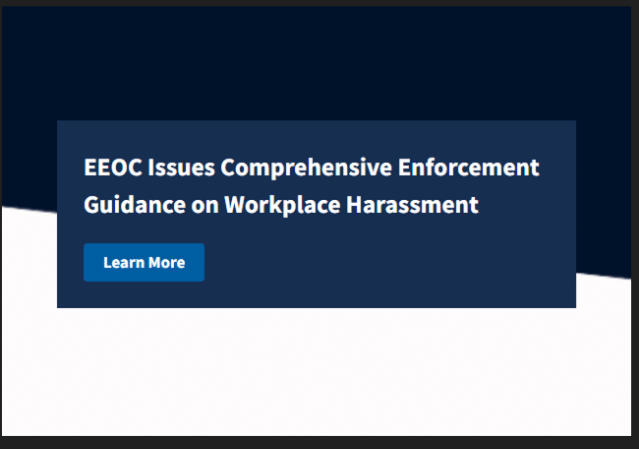Eighteen States Sue EEOC Over Guidelines That Force Employers to Allow Men in Women’s Bathrooms

Well that was fast. As we predicted in last week’s post, a coalition of eighteen states has just sued the Equal Employment Opportunity Commission (EEOC) over its new guidelines that expand the definition of workplace discrimination to include harassment based on “gender identity.”
Under the updated federal guidance released on April 29, employers who misgender employees (i.e., refer to them with a pronoun inconsistent with their known gender identity) or deny them access to restrooms based on their gender identity are liable for sex-based workplace harrasment. So now, to avoid a Title VII claim, employers will be forced to open up their ladies’ rooms to men, putting female workers at risk for exactly the kind of sexual harassment (or worse) the law was meant to protect them from.
The lawsuit asks the court to set aside the guidelines because they exceed the EEOC’s authority—authority properly reserved for Congress and the States.
From the complaint:
The EEOC’s [guidelines are] an exemplar of recent federal agency efforts to enshrine sweeping gender-identity mandates without congressional consent. Among other things, the Enforcement Document declares that Title VII of the Civil Rights Act, 42 U.S.C. § 2000e-2, requires all covered employers and employees to use others’ preferred pronouns; allow transgender individuals to use the shower, locker room, or restroom that corresponds to their gender identity; and refrain from requiring employees to adhere to the dress code that corresponds to their biological sex.
The EEOC says the new guidelines, revised for the first time in 25 years, are merely keeping up with the times. It says it’s relying on the same 2020 Supreme Court case that other courts relied on to rule that transgender-identity-based harassment is sex discrimination under Title VII: Bostock v. Clayton County. In Bostock, the Court held that an employer who fires an employee “simply for being … transgender” violates Title VII’s ban on sex discrimination.
But Bostock was a narrow ruling, the states say, and the EEOC took it too far:
Bostock only concerned—and thus its holding only addresses—allegations of discriminatory termination. … The Court explicitly disclaimed any intent “to address bathrooms, locker rooms, or anything else of the kind.”… Yet the [guidelines rely] on Bostock to construe conduct like “denial of access to a bathroom or other sex-segregated facility consistent with [an] individual’s gender identity” as sex-based discrimination under Title VII.
The EEOC “has effectively rewritten Title VII to create a de facto accommodation for gender identity, even though simple recognition of physiological differences between the sexes does not violate Title VII,” the complaint alleges.
“This new regime threatens Tennessee, its co-Plaintiff States, and countless other employers with enforcement actions and civil liability unless they promote the gender identity preferences of their employees.”
And it threatens those employers with compliance costs they can’t recover. As the lawsuit explains, the states themselves are employers, bound by Title VII and directly regulated by the EEOC guidance. Their own policies are at odds with the new guidelines, not only because they don’t include the affirmative gender-identity accommodations, but also because their laws expressly mandate protection based on biological sex, such as sex-segregated spaces, as existing law requires.
Or rather, as it used to require, before the Biden administration set out on its crusade to prioritize transgender rights, beginning with an executive order on the first day of the President’s term.
The states say that enforcing the new guidelines will subject them to money damages for failure to adopt gender-identity accommodations that conflict with state law and policy—all over the EEOC’s unlawful expansion of Title VII liability beyond what Congress authorized.
The lawsuit coalition is led by Tennessee Attorney General Jonathan Skrmetti, who said in a press release:
In America, the Constitution gives the power to make laws to the people’s elected representatives, not to unaccountable commissioners, and this EEOC guidance is an attack on our constitutional separation of powers. When, as here, a federal agency engages in government over the people instead of government by the people, it undermines the legitimacy of our laws and alienates Americans from our legal system.
“This end-run around our constitutional institutions misuses federal power to eliminate women’s private spaces and punish the use of biologically-accurate pronouns,” Skrmetti said.
As the complaint points out, Tennessee successfully led a coalition of States in securing an injunction from the same federal court against an earlier EEOC guidance document that imposed substantially similar requirements—a reminder to the court that it should do so again.
CLICK HERE FOR FULL VERSION OF THIS STORY